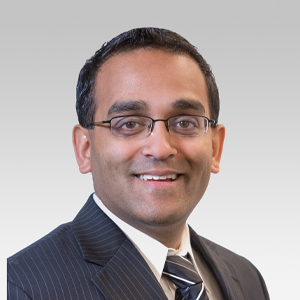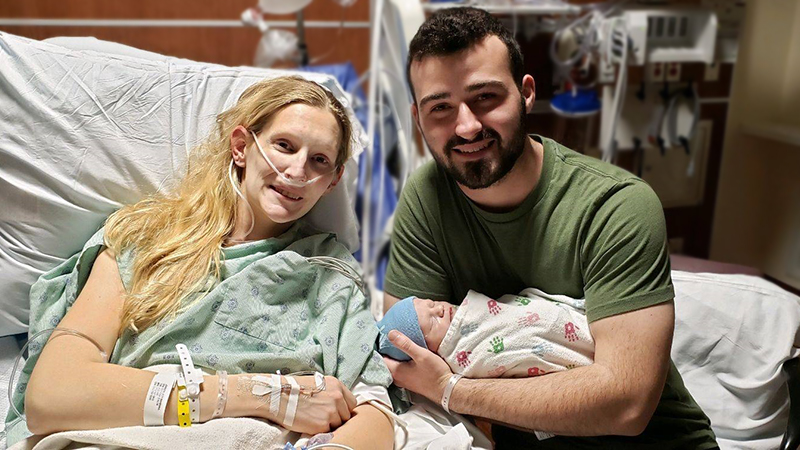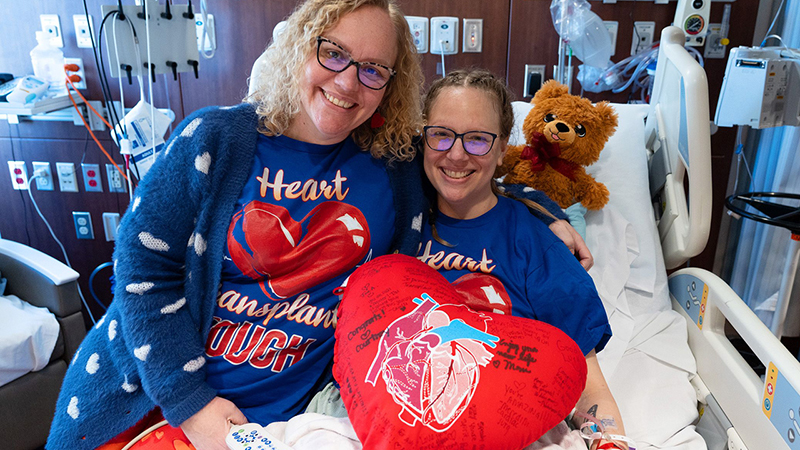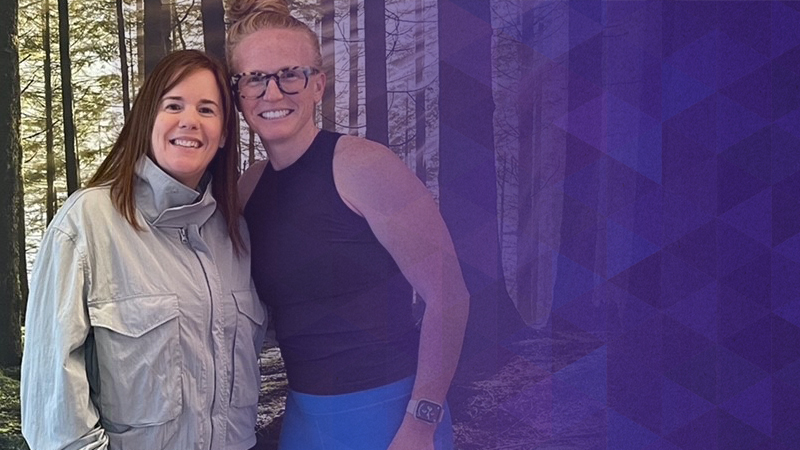'It Helped Me Turn My Life Around'
Published March 2018
Julian’s Spinal Fracture Care
“The accident was a wake-up call. I call it my sign from God.”
That is how Julian describes his experience after suffering a massive injury to his spine that initially left him paralyzed from the neck down.
At just 22 years old, Julian was living the life of a carefree young man when he and his friends visited the local public pool to swim. Julian simply dove into 7 feet of water from the pool’s edge — then he heard a crunch and felt an electric shock that ran from his head to his toes. He had hit his head on the bottom of the pool. Underwater, Julian tried to move and realized he couldn’t.
“Your life really does flash before your eyes,” recalls Julian, who never lost consciousness during the episode.
Fortunately, a friend noticed Julian had not re-emerged from the water after about a minute, and he and another friend pulled Julian to safety. “I just kept saying, ‘I can’t feel anything,’” Julian says. “I was in utter shock.”
Emergency Care
After an ambulance transported Julian to Northwestern Medicine Delnor Hospital in Geneva, Illinois, he was transferred by medical helicopter to Northwestern Memorial Hospital in Chicago. A CT scan revealed compression in the spine from the C5 to T2 vertebrae, with a break in the C6 vertebra.
Northwestern Medical Group Spine Surgeon Alpesh A. Patel, MD, performed emergency surgery to decompress the vertebra, and four days later, he inserted rods into Julian’s broken spine. Julian spent nine days in the Intensive Care Unit.
Julian was transferred to the Rehabilitation Institute of Chicago (RIC, now the Shirley Ryan AbilityLab), where the hard work was about to begin. But he had a major source of motivation to regain function in his arms and legs: Just one week before his accident, Julian had learned he was going to be a father.
“That was such a driving force to continue, to persevere, to drive me forward,” he explains. “I had to be able to take care of him despite my injury. It was no longer just, ‘Julian has to take care of Julian for Julian.’ Now it was, ‘Julian has to take care of Julian for Julian and Logan.’”
Rehabilitation and Transformation
It was during rehabilitation that Julian began to transform, physically, spiritually and emotionally. He underwent four months of physical and occupational therapy at RIC. “It took a lot of hard work, a lot of prayer, a lot of determination,” he recalls. “It was the only thing I could put forth. The rest was up to God.”
Julian says he learned a lot during his time in rehabilitation and after discharge. He says simple things like breathing, which was a struggle for him initially because of his weakened diaphragm, are things he no longer takes for granted. He has a whole new appreciation for all of the things his body can do, things that he used to do automatically without thinking or appreciating it. But he learned deeper lessons, too.
“I learned a lot about being selfless and just really getting my priorities in check,” he says. He saw such selflessness modeled again and again during his recovery, as his family and friends rallied around him throughout his rehabilitation.
Strong Support System
“I had such an amazing support system,” Julian recalls. “A lot of the healing process is physical, but if you’re not surrounded by people who are cheering you on, telling you you’re going to be OK, that would be very discouraging.”
His mom, dad or sister was with him every day, and he enjoyed frequent visits from extended family and friends. “That made an incredible difference,” says Julian.
He also saw this selflessness modeled in the medical professionals who provided his care.
“I am eternally grateful for the amazing work the surgeons did,” says Julian, who also appreciates the excellent care he received from ICU staff. “Everybody was very uplifting, attentive and good at their jobs. We made a point to go back and visit the ICU floor that I was on and some of the nurses who took care of me. I saw how hard the therapists and other people in the medical profession work, and how important their role is in rehabilitation.”
Embracing a New Life
The selflessness that Julian learned about has translated to his approach to fatherhood.
“I’m a much better father than I would have been two years ago,” Julian explains. “There’s a lot of selflessness that goes into parenting, and I would have had a hard time with that before the accident. But now, my son is my number one priority. I’m more driven to make sure that Logan has a good life. I’m not doing it for me anymore — I’m doing it for him.”
Physically, Julian’s life has changed, too. After more than a year of therapy, Julian is walking again, able to attend school full time and work part time. He and his dad frequently work out at the gym together, continuing his own form of therapy now that his official therapy period has ended.
Julian still has some deficits, mainly in his hands and arms, which has been hard to handle because he was a guitar and piano player before the accident. However, he continues to pursue his music through school, studying audio engineering and music production.
Through it all, Julian remains grateful — for the medical care he received, for the support from family and friends, and for the accident itself. “It’s been a crazy process,” he says. “But I would not trade this incident for anything. It helped me turn my life around.”







